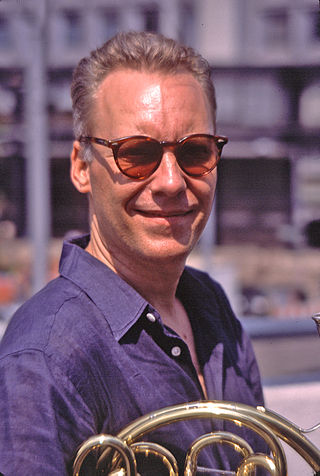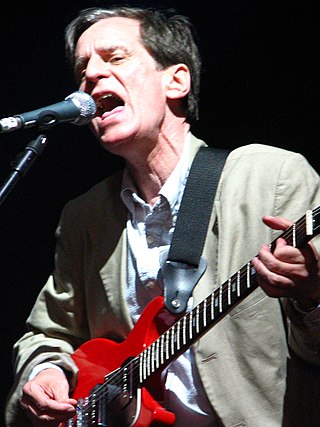Related Research Articles

Randolph Denard Ornette Coleman was an American jazz saxophonist, trumpeter, violinist, and composer. He is best known as a principal founder of the free jazz genre, a term derived from his 1960 album Free Jazz: A Collective Improvisation. His pioneering works often abandoned the harmony-based composition, tonality, chord changes, and fixed rhythm found in earlier jazz idioms. Instead, Coleman emphasized an experimental approach to improvisation rooted in ensemble playing and blues phrasing. Thom Jurek of AllMusic called him "one of the most beloved and polarizing figures in jazz history," noting that while "now celebrated as a fearless innovator and a genius, he was initially regarded by peers and critics as rebellious, disruptive, and even a fraud."

Horace Ward Martin Tavares Silver was an American jazz pianist, composer, and arranger, particularly in the hard bop style that he helped pioneer in the 1950s.

Boniface Ferdinand Leonard "Buddy" DeFranco was an Italian-American jazz clarinetist. In addition to his work as a bandleader, DeFranco led the Glenn Miller Orchestra for almost a decade in the 1960s and 1970s.
Alphonso Son "Dizzy" Reece is a Jamaican-born jazz trumpeter. Reece emerged within London's burgeoning bebop jazz scene during the 1950s and went on to become a leading proponent of hard bop jazz in New York City.

Wake of the Flood is the sixth studio album by the rock band the Grateful Dead. Released on October 15, 1973, it was the first album on the band's own Grateful Dead Records label. Their first studio album in nearly three years, it was also the first without founding member Ron "Pigpen" McKernan, who had recently died. His absence and keyboardist Keith Godchaux's penchants for bebop and modal jazz contributed to the band's musical evolution. Godchaux's wife, vocalist Donna Jean Godchaux, also joined the group and appears on the album.
Lynn Meredith is an American musician and Abstract Artist who was a founding member of what would later become Kansas.

Jesse Albert Stone was an American rhythm and blues musician and songwriter whose influence spanned a wide range of genres. He also used the pseudonyms Charles Calhoun and Chuck Calhoun. His best-known composition as Calhoun was "Shake, Rattle and Roll".

Tom Varner is an American jazz horn player and composer.

William Correa, better known by his stage name Willie Bobo, was an American Latin jazz percussionist of Puerto Rican descent. Bobo rejected the stereotypical expectations of Latino music and was noted for his versatility as an authentic Latin percussionist as well as a jazz drummer easily moving stylistically from jazz, Latin and rhythm and blues music.
Victor Dickenson was an American jazz trombonist. His career began in the 1920s and continued through musical partnerships with Count Basie (1940–41), Sidney Bechet (1941), and Earl Hines.

Joel Forrester is an American jazz composer and pianist. He composed the theme song to NPR's Fresh Air, performed by The Microscopic Septet which Forrester founded in 1980 and led with saxophonist Phillip Johnston. A documentary film about Joel Forrester was made in 2014 entitled Embracing Dissonance: A Life in Bebop. The one-hour and five-minute documentary is an exploration of his diverse musical talents and influences. Forrester recounts previously unknown aspects of the life of Thelonious Monk and the Jazz Baroness, Pannonica Rothschild. The film also explores bebop's origins in the Harlem jazz club Minton's, Forrester's work as a composer of African American church music, as an improv accompanist for silent movies, and as a teacher of jazz musical forms. Forrester's story plays out like a jazz tune: a strong theme runs through a series of improvisational changes, solo riffs, and ensemble resolutions to weave the fabric of a bebop life.

Bennie Ross "Hank" Crawford, Jr. was an American alto saxophonist, pianist, arranger and songwriter whose genres ranged from R&B, hard bop, jazz-funk, and soul jazz. Crawford was musical director for Ray Charles before embarking on a solo career releasing many well-regarded albums for labels such as Atlantic, CTI and Milestone.

Fillmore East, February 1970 is a live album by the rock group the Allman Brothers Band. It was recorded by Owsley Stanley at the Fillmore East in Manhattan on February 11, 13, and 14, 1970. It was released on CD in 1996.
Wayne Andre was an American jazz trombonist, best known for his work as a session musician.

Michael Formanek is an American jazz bassist born in San Francisco, California, United States, and associated with the jazz scene in New York.
Phillip Johnston is an American saxophonist, composer, and author. He came to prominence in the 1980s as co-founder of The Microscopic Septet and went on to write extensively for films, particularly new scores for classic silent films from the early 20th Century.

Ollabelle is a New York–based folk music group named after the influential Appalachian songwriter Ola Belle Reed. The group is composed of five singing multi-instrumentalists hailing from disparate parts of the United States, Canada and Australia.

The Ed Palermo Big Band is a New York City-based ensemble that has been active since the late 1970s, playing the compositions and arrangements of their leader, New Jersey born saxophonist Ed Palermo. The band is best known for Palermo's arrangements of the music of Frank Zappa, but they also perform and record compositions by Todd Rundgren, The Beatles, Miles Davis, Wayne Shorter, The Rolling Stones, Blodwyn Pig, King Crimson, Jethro Tull and many, many other composers from a wide range of genres.
The Muffins were an American Maryland-based progressive rock/avant-jazz group. They were formed in Washington, DC in the early 1970s and recorded four albums before disbanding in 1981. In 1998 the group reformed and recorded a further five albums and a DVD. The Muffins played at Symphony Space on Broadway in NYC with Marion Brown in 1979, and also performed at a number of festivals, starting with the ZU Manifestival in New York City in 1978, The Villa Celimontana festival in Rome, Italy in 2000, two appearances at Progday in 2001 and 2002, NEARfest in 2005, and the "Rock in Opposition" festival in France in 2009. In 2010, the Muffins headlined at Progday, making a third appearance at this long running festival.

Alex Chilton was an American musician, singer-songwriter and record producer, best known as the lead singer of the Box Tops and Big Star. Chilton's early commercial success in the 1960s as a teen vocalist for the Box Tops was never repeated in later years with Big Star and in his subsequent indie music solo career on small labels, but he drew an intense following among indie and alternative rock musicians. He is frequently cited as a seminal influence by influential rock artists and bands, some of whose testimonials appeared in the 2012 documentary Big Star: Nothing Can Hurt Me.